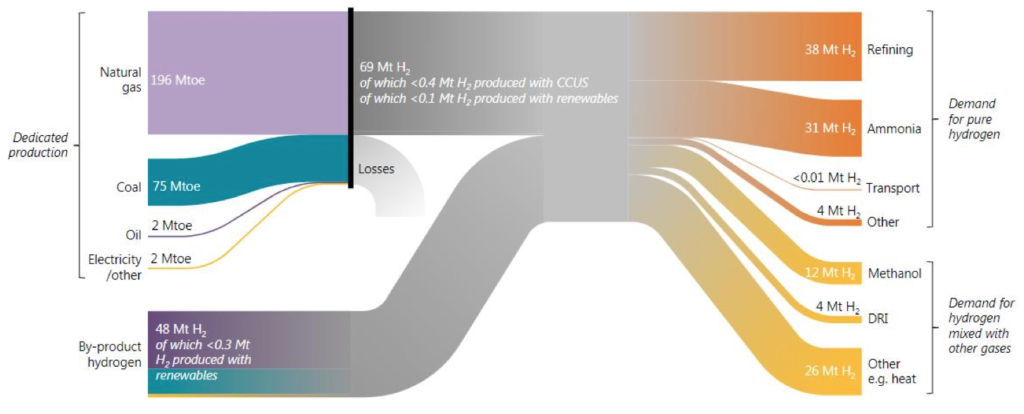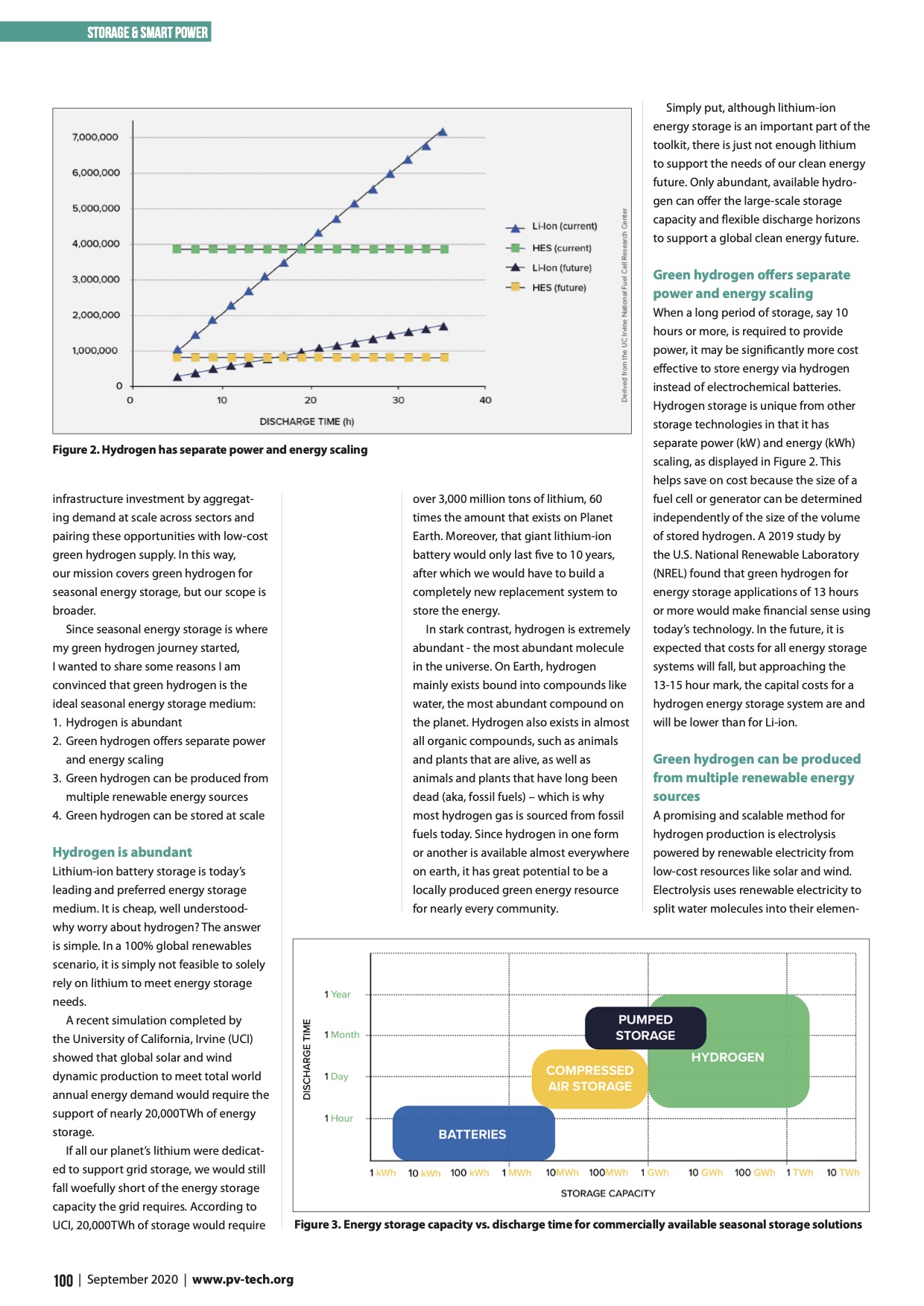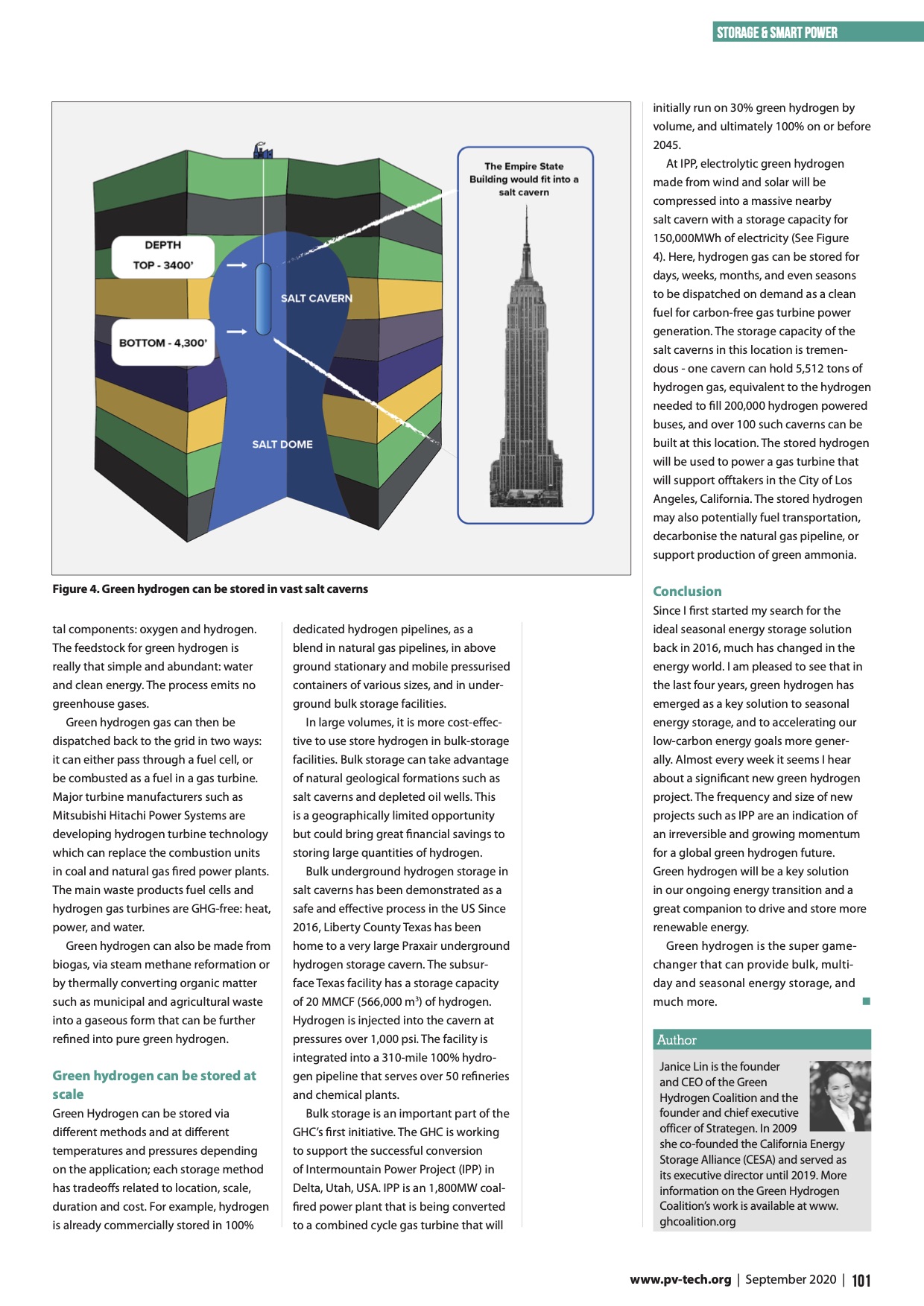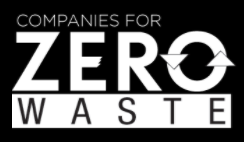Hydrogen has been a part of the energy conversation for nearly two decades, but today, the path to a scaled green hydrogen economy finally feels clear. There are many reasons why the landscape is different from even five years ago, including the effects of climate change are no longer theoretical and are becoming more widely accepted. Additionally, countries and states alike have accepted this call to action by setting measurable and actionable climate plans.
“The time to act on green hydrogen is now, there is a pathway, the solutions are here, and green hydrogen is a gamechanger to decarbonize multiple sectors,” says Janice Lin, Founder and President of the Green Hydrogen Coalition (GHC).
Ms. Lin believes green hydrogen will play a major role in multi-sectoral decarbonization and will be a significant source of job creation and economic development. She believes that we can take advantage of our abundant renewables resources to create electrolytic hydrogen.
Hydrogen is a globally traded commodity with a robust international market, but only 1% of that hydrogen is considered green hydrogen, or hydrogen created without using fossil fuel feedstocks. The green hydrogen market has gained significant momentum in the past couple of years and continues to accelerate thanks to falling prices of renewables and government support in areas like Europe and Japan.

Green hydrogen can be used in lieu of natural gas for heat in industrial applications, to replace gas and diesel in vehicles, to replace diesel or bunker fuels for shipping and aviation, and to power hydrogen fuel cells for vehicles and aviation.
Electrolytically produced green hydrogen is on a path to become much cheaper, very quickly. Ms. Lin notes ample supply of low-cost renewable energy are one component that is enabling the cost of green hydrogen production to come down, another is increased demand for technologies like electrolyzers and fuel cells. “Green hydrogen shows similar market entry momentum to solar, wind, and batteries, whose costs have fallen precipitously with scale.”
The Green Hydrogen Coalition is the only educational non-profit dedicated to facilitating policies and practices to advance the production and use of green hydrogen in all sectors where it will accelerate the transition to a carbon free energy system. To learn more visit www.ghcoalition.org


Janice Lin is the Founder and CEO of the Green Hydrogen Coalition and the Founder and Chief Executive Officer of Strategen. She brings more than two decades of experience in clean energy strategy, market development, and corporate strategy to Strategen. During this time, she has advised a diverse range of clients including renewable energy equipment manufacturers and service providers, large corporations diversifying into clean energy, and real estate developers building sustainable communities.
In 2009 Janice co-founded the California Energy Storage Alliance (CESA), and served as its Executive Director until 2019. Janice has also served on the Electricity Advisory Council of the US Department of Energy, the Board of Advisors for the Energy Policy Initiatives Center (EPIC) and the Energy Storage Committee of Joint Venture Silicon Valley. Janice is also a Member of the Advisory Council of the German American Chamber of Commerce, the UCSD Strategic Energy Initiatives Advisory Council, and Co-Founder and Chair of the annual Energy Storage North America (ESNA) conference.
Prior to founding Strategen in 2005, Janice held several senior management positions with PowerLight Corporation (now SunPower Corporation), including Vice President of Product Strategy and Vice President of Business Development. During her tenure at PowerLight, Janice led initiatives in product and new market strategies, business development, regulatory affairs, strategic partnerships, investor relations, and customer finance.
Janice holds an MBA from the Stanford Graduate School of Business, a BS from the Wharton School, University of Pennsylvania, and a BA in International Relations from the University of Pennsylvania’s College of Arts and Sciences. She is the winner of ESA’s 2013 Phil Symons Energy Storage Award, and NAATBATT’s 2014 Market Development Award and Cleanie 2019 Entrepreneur of the Year Award.





